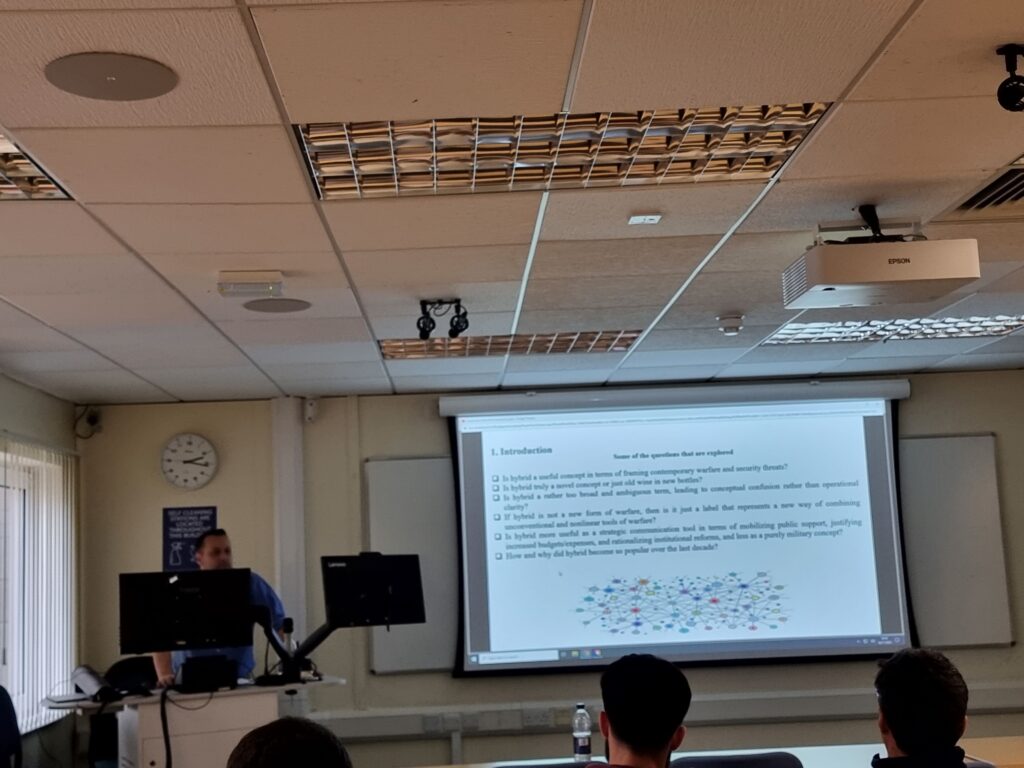Dr. Andreas Liaropoulos,
Associate Professor, International Relations & Strategic Studies, University of Piraeus
The presentation reviewed the hybrid concept, discussed the conceptual ambiguity around the hybrid terminology (hybrid warfare/threats, etc) and questioned not only the novelty of the concept, but also its operational utility. After Russia’s annexation of Crimea, hybrid entered the strategic lexicon and dominated the discussions about the transforming character of war. It has been officially adopted in strategic documents and doctrines in both NATO and the EU. Although hybrid warfare is a popular term, the fact that it serves as an umbrella term that encompasses and combines among others, information operations, political warfare, sabotage, economic coercion, cyber-attacks, spreading of fake news and conventional military means, raises concerns about the conceptual utility and operational value of this term. The presentation highlighted that hybrid warfare is perceived by practitioners, as a synonym to political warfare and information warfare, thus raising questions about the practical value of such a broad and elusive term. Adding to the above, hybrid warfare is not truly a new form of warfare. War always had a hybrid component. The sociopolitical context and the technological means differ in each era, but the rationale of combining conventional and non-conventional tools to reach a political objective is always the same. On the other hand, hybrid is useful because it raised awareness within the military and intelligence communities and stimulated debates on the need to build societal resilience. The last part of the presentation focused on the way hybrid threats are conceptualized within the EU and explained the bureaucratic and practical obstacles relating to the implementation of the EU Hybrid Toolbox.

